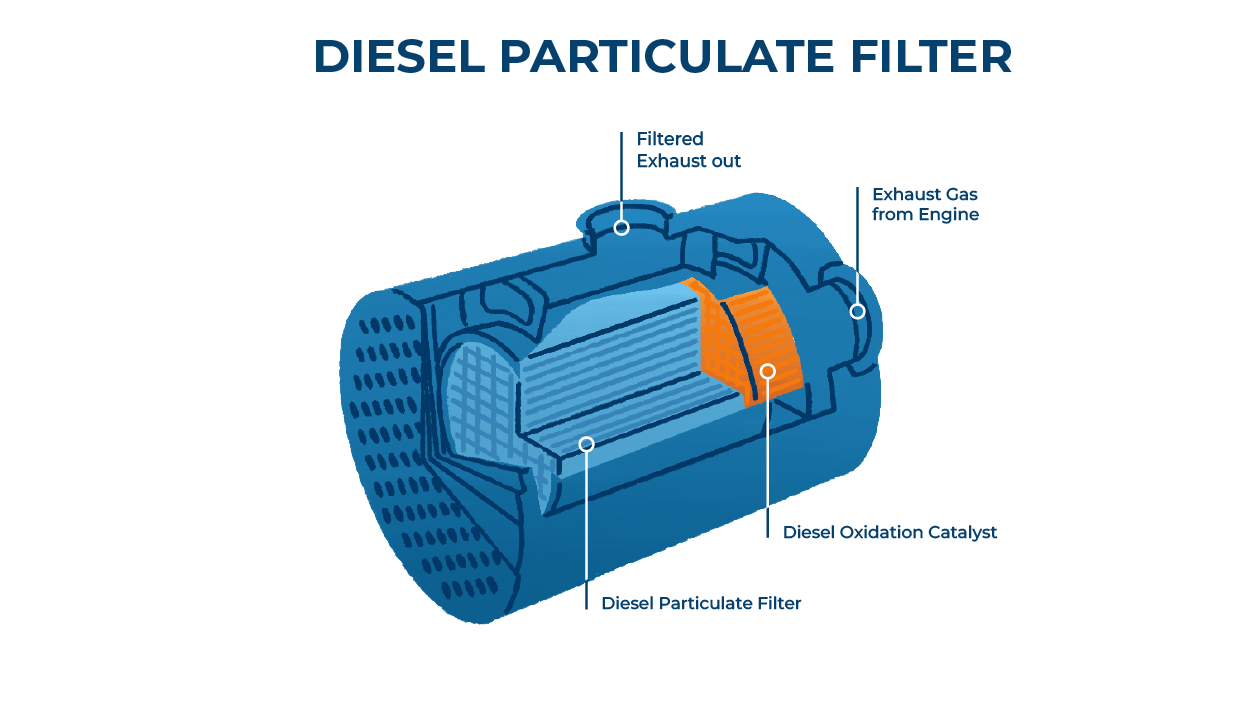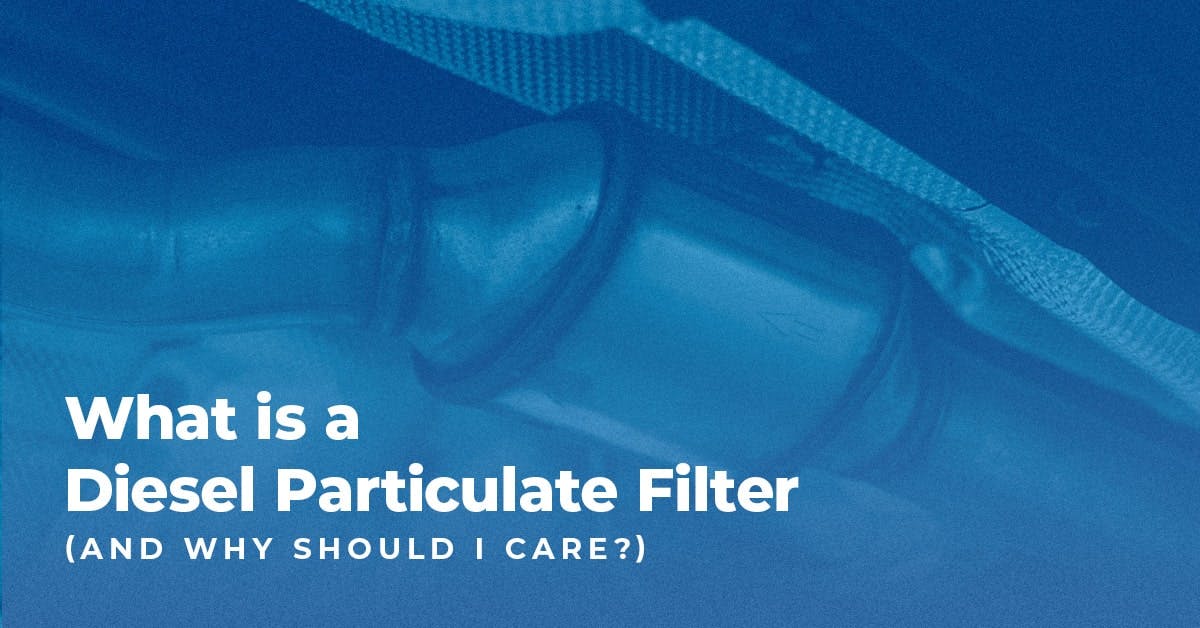A diesel particulate filter (DPF) is a vital component of modern diesel engines.
Read on and find out what a diesel particulate filter is, what it does and why you should care.
Page Contents
What Is a Diesel Particulate Filter?
If you own a diesel car that was built after 2009, then it will have a diesel particulate filter.
The diesel particulate filter is a vital emissions control device installed in the exhaust system of modern diesel vehicles.
The main function of a DPF is to reduce the harmful particulate matter emissions from diesel engines.
The filter traps soot particulate during combustion, preventing them from being released into and polluting the air.
The DPF consists of a honeycomb-shaped structure made up of a network of channels that trap and collect soot particles as exhaust gases pass through it.
During a process known as regeneration, the soot particles can be burned off at high temperatures.
Active regeneration is initiated by the vehicle’s engine management system.
Passive regeneration occurs naturally whilst driving on the motorway for 15 minutes or longer at a speed of at least 40mph.
As your car exhaust produces several harmful gases, it must meet a certain standard so as not to severely impact air quality.
This is dictated by the EU emissions standards.
With the introduction of Euro 7 in the coming months, the rules for diesel cars are likely to change.
Where Is the Diesel Particulate Filter Located?
The DPF is usually located in the exhaust system.
You can normally find it underneath the vehicle near the engine, along the exhaust pipe.
You can refer to your owner’s manual to find out where your car’s DPF is located.

How Do You Clean a DPF?
Your car’s DPF may be blocked if you have noticed a loss of power, increase in exhaust smoke, failure to regenerate or an illuminated DPF warning light.
If you suspect that your DPF is blocked, you should book an appointment with a professional garage promptly to prevent further damage.
Cleaning a DPF involves removing the soot and ash that has built up in the filter.
The processes of active and passive regeneration can help to clean the diesel particulate filter.
You can also add specialised DPF cleaning additives to the fuel tank to aid in the regeneration process.
You should book a professional DPF clean every 6 to 9 months to take good care of your DPF.
Once your DPF is 90% full of soot, you will require a DPF replacement.
FAQs







